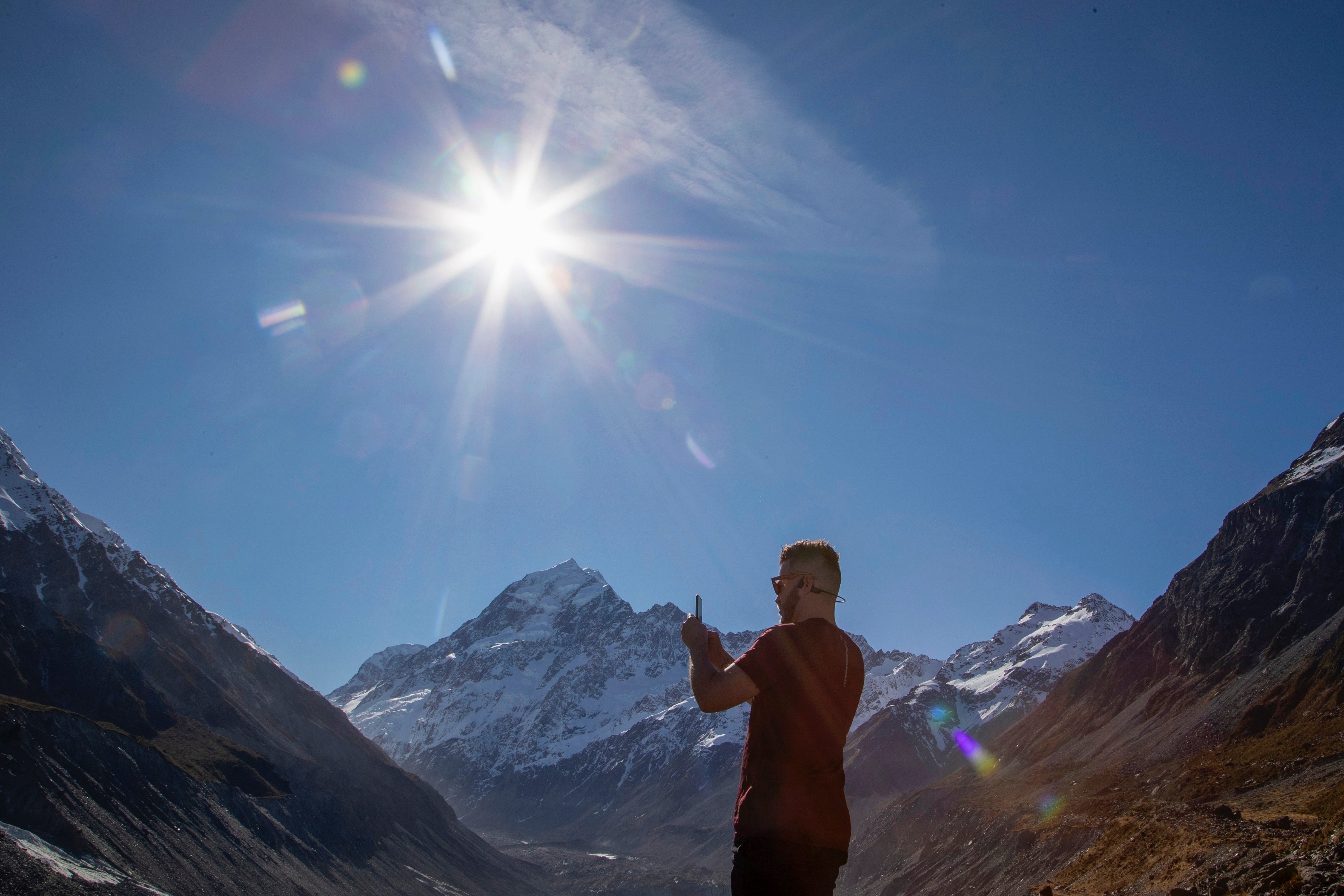Items found in search for three missing climbers on New Zealand’s highest peak
Tributes are being paid to the climbers after items of clothing were found

Your support helps us to tell the story
From reproductive rights to climate change to Big Tech, The Independent is on the ground when the story is developing. Whether it's investigating the financials of Elon Musk's pro-Trump PAC or producing our latest documentary, 'The A Word', which shines a light on the American women fighting for reproductive rights, we know how important it is to parse out the facts from the messaging.
At such a critical moment in US history, we need reporters on the ground. Your donation allows us to keep sending journalists to speak to both sides of the story.
The Independent is trusted by Americans across the entire political spectrum. And unlike many other quality news outlets, we choose not to lock Americans out of our reporting and analysis with paywalls. We believe quality journalism should be available to everyone, paid for by those who can afford it.
Your support makes all the difference.Three climbers from the US and Canada are missing after they failed to return from a planned ascent of New Zealand's highest peak, Aoraki, authorities said on Tuesday.
The Americans — Kurt Blair, 56, from Colorado and Carlos Romero, 50, of California — are certified alpine guides, according to the website of the American Mountain Guides Association. A statement by New Zealand's police did not name the Canadian climber, citing the need to notify his family.
The men flew to a hut partway up the mountain on Saturday to begin their ascent and were reported missing on Monday when they did not arrive to meet their prearranged transport after the climb.
Searchers hours later found several climbing-related items believed to belong to the men, but no sign of them, police said.
Search efforts did not resume on Tuesday due to deteriorating weather conditions on Aoraki, also known as Mt. Cook, with heavy rain and snow forecast. Operations were unlikely to begin again until conditions improved, expected to be on Thursday.
Aoraki is 3,724 meters (12,218 feet) high and is part of the Southern Alps, the scenic and icy mountain range that runs the length of New Zealand's South Island. A settlement of the same name at its base is a destination for domestic and foreign tourists.
The peak is popular among experienced climbers. Its terrain is technically difficult due to crevasses, avalanche risk, changeable weather and glacier movement.

More than 240 deaths have been recorded on the mountain and in the surrounding national park since the start of the 20th century.
In a post on Facebook, Silverton Avalanche School, based in Colorado, said it received notification from authorities that the climbers appear to have taken a fatal fall.
It read: “Gear and equipment found from the party has helped SAR piece together the tragedy although remote, technical and heavily glaciated terrain coupled with deteriorating weather has prevented a recovery of the climbers”.
Adding: “Kurt was a beloved fixture of the San Juan mountains who comes from a proud lineage of mountain adventurers.
“His calm demeanour and positive presence ran counter to the rough edges and sharp tongues so often exemplified by the hard scrabble ranks of mountain guides.
“He was the nicest guy you’d ever share a rope or trail or skin track with, and his humility, competence and polite nature made him a client and student favourite,” it wrote.